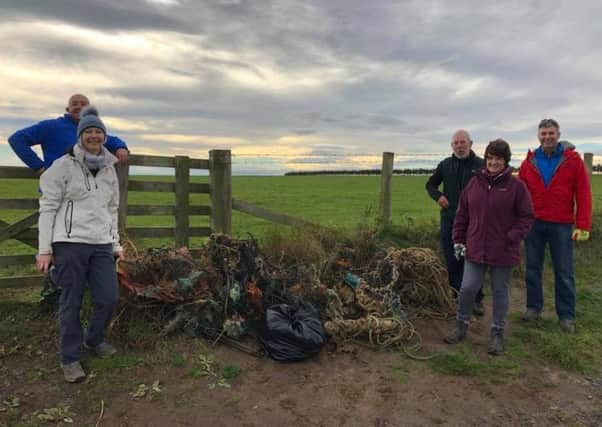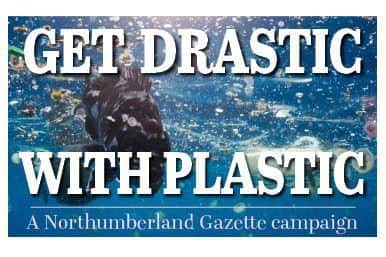GET DRASTIC WITH PLASTIC: Team pleased with productive beach litter pick


The team of 10 carried out a beach litter pick at Sugar Sands, near Longhoughton, on Saturday morning.
They took away a plethora of fishing wire, balloons and what is described as ghost fishing – nets and other fish traps that have been lost, dumped or abandoned.


Advertisement
Hide AdAdvertisement
Hide AdOne of those taking part was community sports officer Jane Hardy, who also does beach surveys for Coast Care.
She said: “It’s a nice thing to do because you are outside, spending time with like-minded people and helping your community.
“As well as the fishing equipment and balloons, it was disappointing to find some empty beer cans and plastic bags at the bottom of the sand dunes.
“We know that some of the gear will be lost rather than dumped. During this beach litter pick, we found a few lobster pots with tags.
Advertisement
Hide AdAdvertisement
Hide Ad“There is a number for NIFCA (Northumberland Inshore Fisheries and Conservation Authority) on them unless they are old ones, so if you do find a such a tag please report it to them. This will help fisherman to get their lobster pot back or get a replacement.”
Jane is also a volunteer marine mammal medic for the British Divers Marine Life Rescue and has had to help wildlife that has been troubled by litter. As well as wrappers and plastic bags, other items such as plastic toys, buckets and spades can cause problems.
According to information from the Marine Conservation Society’s Great British Beach Clean last year, there were 718 pieces of litter on average per 100metres of beach in the UK.
Some of the items came from things that have been flushed down the toilet that should have been binned – for example wet wipes and cotton buds.
Advertisement
Hide AdAdvertisement
Hide AdPlastics are known to contain and absorb toxic chemicals, with research on wild animals showing these chemicals are released into the animals’ tissues.
On a global scale, a report produced by the World Economic Forum at the start of 2016 stated that if nothing changed and plastic production and waste continued, the oceans would contain one tonne of plastic for every three tonnes of fish by 2025 and by 2050, plastics would out-weigh fish in the oceans.
Coast Care is an initiative created to train, support and resource volunteers to contribute to the management and conservation of the Northumberland coastline from Berwick to Amble.
For more information about its upcoming activities, go to www.coast-care.co.ukWHAT YOU CAN DO TO HELP TACKLE PROBLEM
Advertisement
Hide AdAdvertisement
Hide AdGreater awareness and a change in attitudes can reduce plastic waste.
Since the plastic-bag charge began, a reduction of plastic bags has been found on UK coasts.
We are seeing further commitment and positive steps from the Government and many companies are committing to changing their packaging.
These things combined can have a huge impact.
But there some steps that everyone can take:
1. Buy a refillable water bottle;
2. Buy a reusable coffee cup;
3. Say no to plastic straws;
4. Use paper-stemmed cotton buds;
5. Join a beach clean.